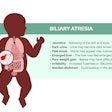
LONDON (Reuters), May 10 - Scientific and scholarly publishers, including Reed Elsevier and John Wiley, are launching an offensive against newly proposed U.S. legislation that would require them to make much of their research available for free within six months of publication.
The proposal from two U.S. lawmakers opens a new front in a mounting global push to make taxpayer-funded research more widely accessible in what is a potential threat to publishers' business models.
Publishers collectively invest hundreds of millions of dollars to publish and disseminate peer-reviewed journals and make profits by selling print and online subscriptions -- and sometimes individual articles -- for up to hundreds of dollars a year.
"Mandating that journal articles be made freely available on government Web sites so soon after their publication will be a powerful disincentive for publishers to continue these substantial investments," Brian Crawford, chairman of the professional publishers' trade group, said on Tuesday.
About 70% of a typical article's usage value occurs after six months, Crawford said, citing independent librarian research and publishers' own accounts.
He said that publishers are already taking voluntary steps to make more research available and that they firmly oppose the legislation. They are calling instead for an independent study to scrutinize the potential effect the proposal might have on research quality and taxpayer costs. Individual publishers deferred comment to Crawford's group, the Professional Scholarly Publishing Division of the Association of American Publishers (AAP).
Elsevier, the world's largest publisher of science and technology research -- 170,000 new articles a year -- generated 1.44 billion pounds ($2.7 billion) of revenue in 2005 with an operating profit of 449 million pounds.
Voluntary plan
The Federal Research Public Access Act of 2006, introduced in the Senate last week by John Cornyn, a Republican from Texas, and Joe Lieberman, a Connecticut Democrat, would require that research funded by any of 11 government agencies with annual outside funding budgets of at least $100 million be freely available six months after publication.
"We wrote this legislation to give taxpayers access to scientific discoveries and advancements that they are paying for," Lieberman said.
It is unclear if the proposal will advance this year, given that lawmakers have a shortened session because of the November congressional elections.
The publishers' group, whose members also include McGraw-Hill, Springer and university presses, say that the general public can find the journals at libraries and nearly all researchers access it through their universities or companies.
"At least 95% of the demand is being met by current models that are in place," Crawford said.
Cornyn said the U.S. government invests more than $55 billion on basic and applied research, most of it spent by the agencies covered in the legislation including the National Science Foundation and the Department of Energy.
The proposal comes a year after the National Institutes of Health implemented a plan that encouraged, but did not require, NIH grant recipients to make their research publicly available within 12 months. Less than 4% have done so.
The implementation of the NIH plan has been flawed, Crawford said, in part for lacking the necessary outreach.
"It's almost as though they wanted to show limited compliance to gain a mandatory policy," he said, adding that it is too soon to know if the NIH plan has worked.
Cornyn said the agency's voluntary proposal has made strong progress but that more needs to be done.
Allan Adler, the AAP's vice president of legal and government affairs, said the legislators also had not considered the economic impact of the proposal, including how publishers would retain their customers or pay for independent peer review systems.
The push for open access to publicly funded research is growing in Europe, as well.
A report for the European Commission earlier this year said that from 1975 to 1995 the price of scientific journals soared 300% more than the rate of inflation while subscriptions waned as library and researcher budgets were squeezed.
The report's authors, economists from two universities, recommended that research funded by European taxpayers be made freely available over the Internet.
By Jeffrey Goldfarb
(Additional reporting by Jeremy Pelofsky in Washington)
Last Updated: 2006-05-09 15:44:49 -0400 (Reuters Health)
Copyright © 2006 Reuters Limited. All rights reserved. Republication or redistribution of Reuters content, including by framing or similar means, is expressly prohibited without the prior written consent of Reuters. Reuters shall not be liable for any errors or delays in the content, or for any actions taken in reliance thereon. Reuters and the Reuters sphere logo are registered trademarks and trademarks of the Reuters group of companies around the world.

















